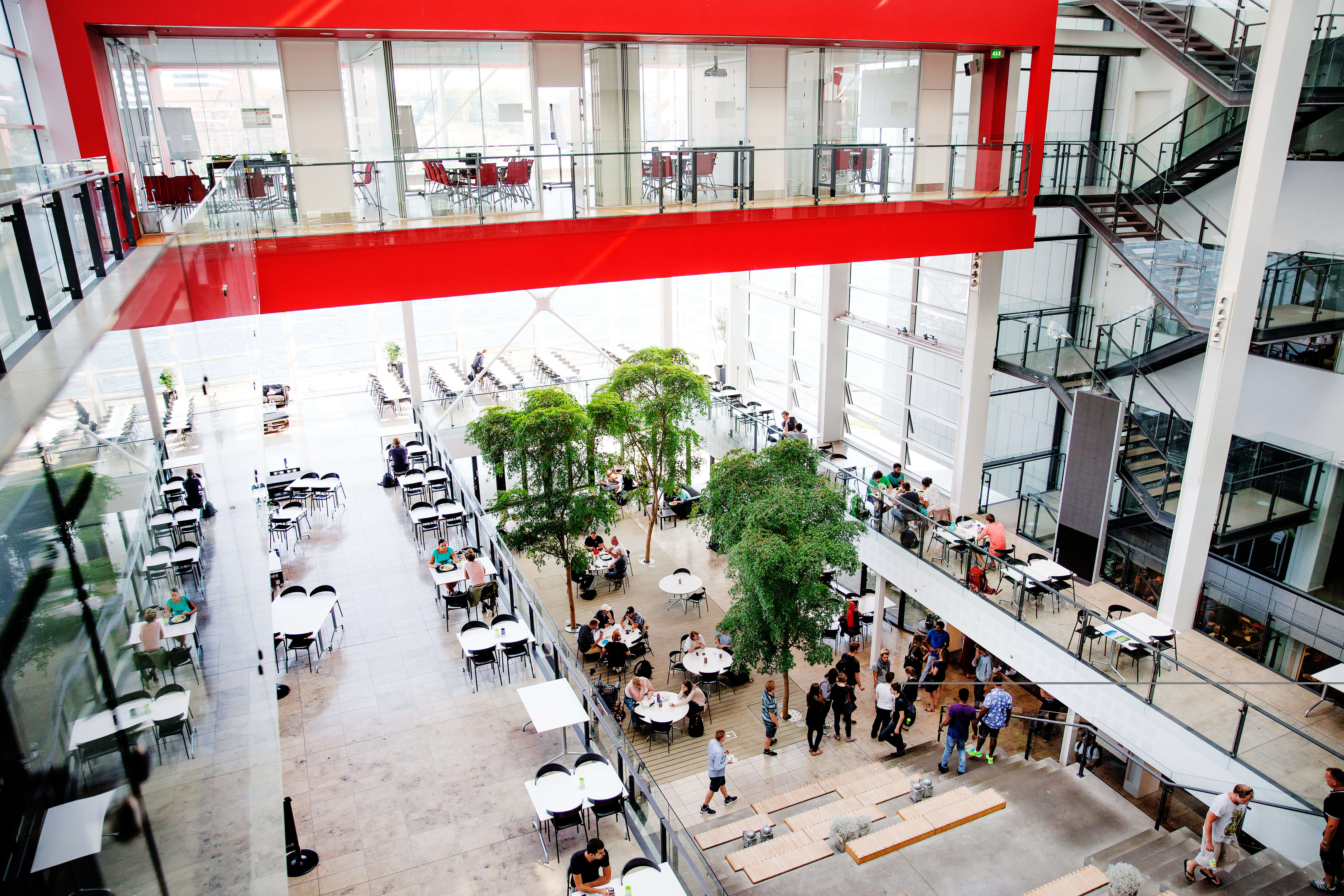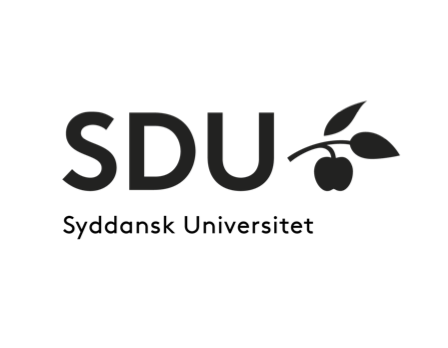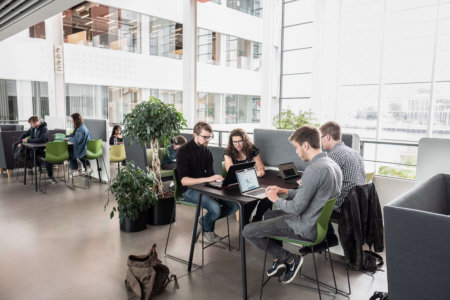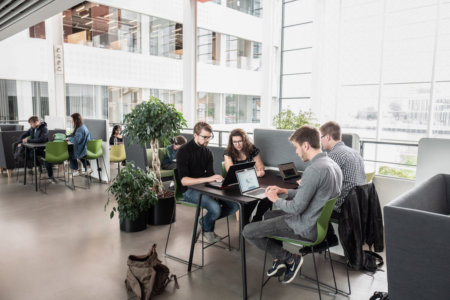Landing an internship is a cause for celebration anywhere in the world. Landing one in the innovation powerhouse of Denmark, however, can be an almost euphoric experience.
Just ask Kristians Kreinbergs, a BEng in Mechatronics graduate from the University of Southern Denmark. He began at BITZER Electronics — an internationally leading, independent specialist for refrigeration and air conditioning technology — with a six-months stint as an intern. “Mainly I’m here for test support, which means I might be building some test rigs or a test setup. It could be some test software, sometimes even design. Since I’m not from Denmark, I think it is time to bring in some international perspective.”
The international graduate would then progress to become a Student Hardware Engineer for the next six months, before winning a full-time position as an R&D Engineer this January. It is no small feat — BITZER has 72 sites in 37 countries and 3,800 employees, plus a turnover of 808 million euros in 2020. Its expenditure for research and development totalled 45 million euros.
Kreinbergs’s story is typical of SDU Mechatronics and Engineering students. Not only did he explore basic courses in mechanics, electronics, programming, mathematics, and physics on campus, he also specialised via electives.
Add a six-month internship in a Danish or foreign company and an interdisciplinary project — often in collaboration with a company — and students have the complete package to graduate career-ready. “The best part about studying here is the emphasis on project work,” shares Electronics student Shashwath Sureh from India. “There is a good blend of working in lectures and in projects. I believe it is important to emphasise on the practical side of things if you want to be an engineer.”
Every year, bachelor’s and postgraduate students from SDU work and study together with both private companies and public institutions. “This can happen in the form of a student job but also via projects or internships in which the students can spend one semester in a company,” shares Head of Campus Sønderborg Professor Horst-Günter Rubahn. “The students can write their bachelor or master thesis projects together with a company. They do not need to be physically present in the company but can work with data or cases from it.”
As the programme is in English and set in an international environment, students like Sophie Hansen are confident to seize future opportunities to work in different countries. She did her internship at Danfoss Power Solutions in Motor Engineering, where she was part of a team testing and improving hydraulic motors for customer needs.
Her project is redesigning a ceiling system for a hydraulic orbital motor and will be implemented in a whole motor series. “Students are dealing with daily business projects together with Danfoss engineers. We are creating long-term relations with potential new Danfoss colleagues,” shares Tom Maagaard, engineering manager of Danfoss Power Solutions in Motor Engineering. “This enables us to fill up the pipeline of people who can take part in developing Danfoss into the future.”
For Hansen, the advantages of an industry project is she gets to be part of a bigger team, to know future colleagues and the world, as well as access to state-of-the-art equipment and laboratories. “You also have the chance to learn from the experts in the fields so whenever you run into challenges, you have someone to ask,” she adds.
The best parts? Scholarships and SDU’s unique first job guarantee. Non-EU/EEA MSc in Engineering – Mechatronics and MSc in Engineering – Electronics students are eligible for the Danish Government Scholarship. All eligible applicants who are offered a study place will automatically be considered for the scholarship. No separate application is needed. The scholarship consists of two parts: a full tuition fee waiver and a grant, to help cover living costs amounting to DKK 3000 per month before taxes.
The first job-guarantee scheme is an unique initiative of local companies to attract young talents from all over the world to SDU’s engineering study programmes. With this scheme, SDU engineering graduates are set to work in one of the most tech-forward countries in the world — and in high-skilled, well-paid and fulfilling jobs too.













